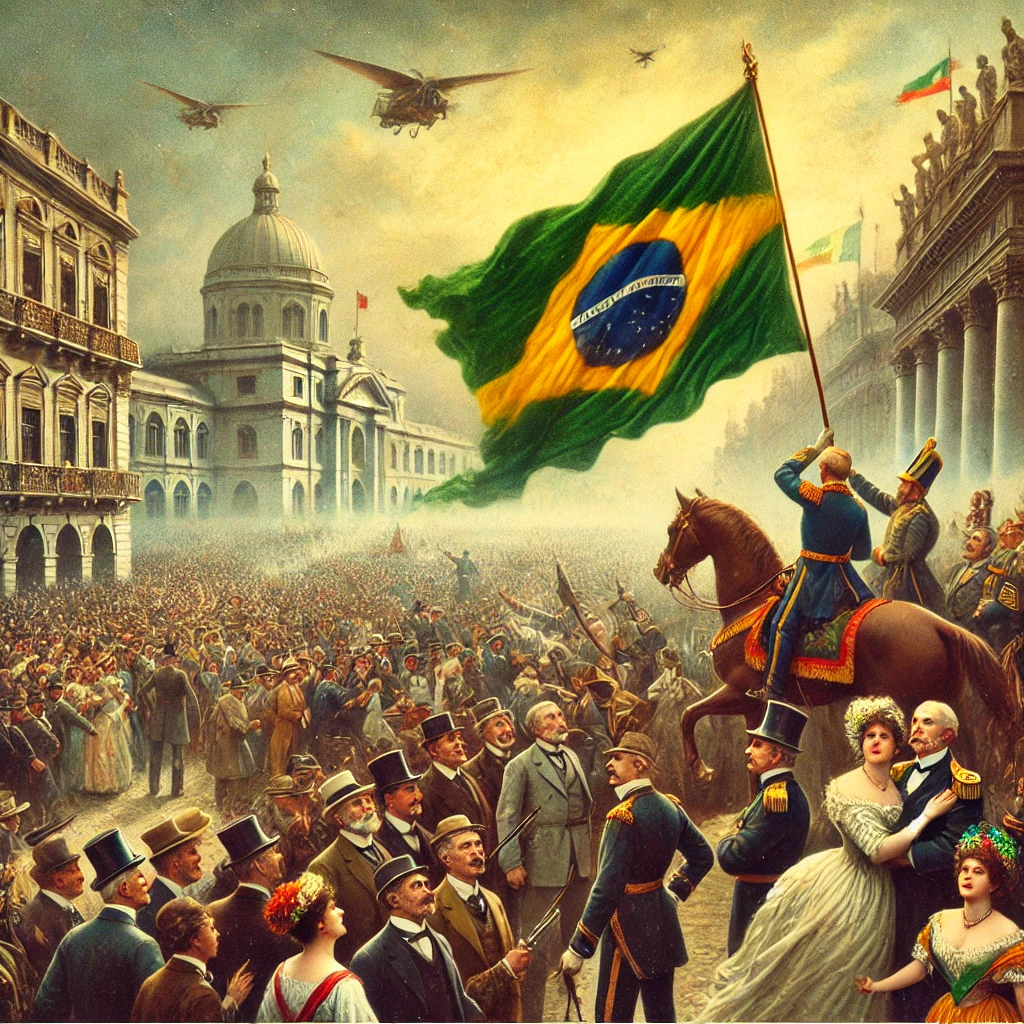On November 15, 1889, Brazil underwent a monumental transformation as the monarchy was abolished, paving the way for the establishment of a republic. This significant event marked the end of the imperial era in Brazil and represented a decisive turning point in the nation’s history. The transition from monarchy to republic reflected the growing aspirations for democracy, modernization, and national identity among Brazilians.

The Imperial Context
The Brazilian monarchy, established in the early 19th century, was characterized by the rule of Emperor Dom Pedro I and later his son, Dom Pedro II. Under their leadership, Brazil experienced significant economic growth and cultural development, becoming one of the largest coffee producers in the world. However, the empire faced mounting pressures from various sectors of society, including growing republican sentiment, the abolitionist movement, and dissatisfaction with the monarchy’s concentration of power.
By the late 19th century, social and political unrest had begun to surface. The push for abolition of slavery, which was achieved in 1888, played a crucial role in eroding support for the monarchy, as many former slaves and their advocates sought a more inclusive political system. Additionally, the rise of military influence and the growing desire for modernization fueled calls for a republican government, culminating in the events that led to the monarchy’s downfall.
The Proclamation of the Republic
The transition to a republic was swift and largely bloodless. On the morning of November 15, 1889, a military coup led by Marshal Manuel Deodoro da Fonseca resulted in the abdication of Dom Pedro II and the establishment of a provisional government. Deodoro da Fonseca assumed the presidency, and the proclamation of the Republic of Brazil was announced, marking the end of the monarchy and the dawn of a new political era.

The proclamation was met with a mix of enthusiasm and apprehension. While many celebrated the newfound republican ideals of freedom and equality, others worried about the stability of the new government. The lack of a clear constitutional framework and the tensions between various factions within the republican movement highlighted the challenges that lay ahead in building a cohesive nation.
Lasting Impact on Brazilian Society
The abolition of the monarchy and the establishment of the republic had profound implications for Brazil’s political landscape and societal structure. The new government sought to modernize the country, implementing reforms that aimed to promote economic growth and social progress. However, the transition was not without its challenges. Political instability and power struggles characterized the early years of the republic, leading to a series of coups and changes in leadership.
Moreover, the shift from monarchy to republic altered the relationship between the state and its citizens. The republican government faced the task of addressing the social inequalities that persisted, particularly among the Afro-Brazilian population and the rural poor. The legacy of these challenges continues to resonate in contemporary Brazilian society, where discussions about inequality and representation remain central to the national dialogue.
The abolition of the Brazilian monarchy on November 15, 1889, stands as a pivotal moment in the nation’s history, signaling the end of the imperial era and the rise of republican ideals. This transition not only reshaped Brazil’s political landscape but also reflected the aspirations of its people for a more equitable and democratic society. As we reflect on this significant event, we recognize its lasting impact on Brazilian history and the ongoing journey toward fulfilling the promises of the republic. The legacy of this transformation continues to influence Brazil’s identity and development as a nation committed to the principles of democracy and social justice.
